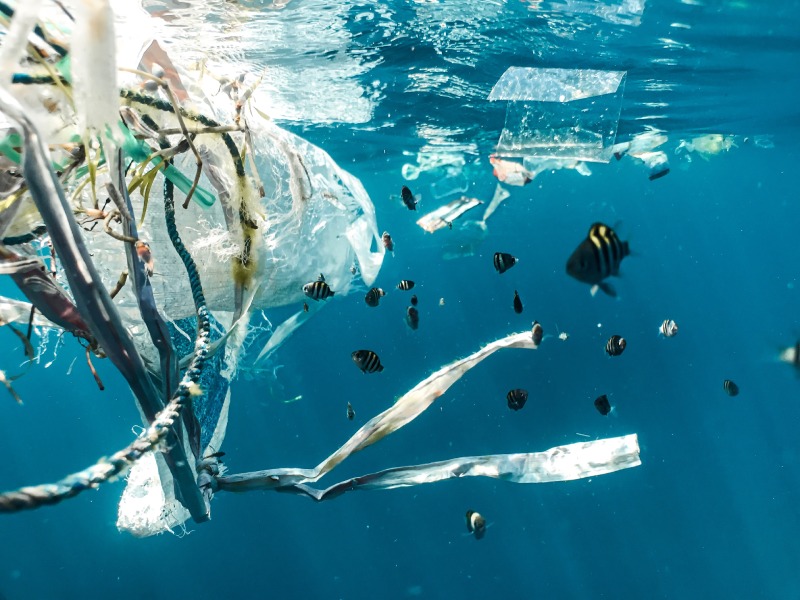In the natural cycle of life, decomposition plays a crucial role in breaking down organic matter, returning nutrients to the soil, and supporting ecosystems. However, not everything in our world follows this pattern. Some materials and substances are incredibly resistant to decomposition, persisting in the environment for years, decades, or even centuries. In this article, we’ll explore what things do not decompose, shedding light on the environmental impact and challenges associated with these long-lasting materials.
Introduction
Decomposition is a natural process that helps maintain ecological balance and nutrient cycling. It involves the breakdown of organic matter into simpler substances by microorganisms, fungi, and other decomposers. However, certain items defy this process, contributing to environmental pollution and posing challenges for waste management.
Materials That Do Not Decompose
- PlasticsPlastics are some of the most notorious non-decomposable materials. They can take hundreds of years to break down under natural conditions. Here are a few examples of common plastics and their decomposition times:Plastic TypeDecomposition TimePET (Polyethylene Terephthalate)500-1000 yearsHDPE (High-Density Polyethylene)20-500 yearsPVC (Polyvinyl Chloride)100-1000 yearsPP (Polypropylene)20-30 yearsPS (Polystyrene)500+ yearsPlastic pollution is a significant environmental concern, as discarded plastic items accumulate in landfills, oceans, and ecosystems, harming wildlife and marine life.
- GlassWhile glass is often considered an eco-friendly material because it can be recycled indefinitely without loss of quality, it does not decompose naturally. Glass items can persist in the environment for millions of years without breaking down. However, recycling glass helps reduce its environmental impact.
- AluminumAluminum is another material that does not decompose in the traditional sense. It can take hundreds of years to degrade under natural conditions. Recycling aluminum, on the other hand, is highly efficient and significantly reduces its environmental footprint.
Substances That Do Not Decompose
- Nuclear WasteRadioactive materials, such as nuclear waste, pose a unique challenge. They remain hazardous for thousands of years, and there is currently no way to accelerate their decomposition. Proper disposal and long-term containment are essential to prevent environmental contamination.
- StyrofoamStyrofoam, or expanded polystyrene (EPS), is known for its resistance to decomposition. It can persist in the environment for centuries, contributing to litter and pollution. Efforts are underway to find alternative materials that are more environmentally friendly.
Factors Influencing Decomposition
Several factors influence the decomposition process, including:
- Environmental Conditions: Temperature, humidity, and oxygen levels can all affect the rate of decomposition. For instance, organic matter decomposes more slowly in cold and anaerobic (low-oxygen) environments.
- Chemical Composition: The composition of materials plays a crucial role. Organic matter, composed mainly of carbon and hydrogen, decomposes more readily than materials with complex synthetic compounds.
- Microorganisms: The presence and activity of decomposers like bacteria, fungi, and insects are essential for breaking down organic matter. Some materials do not provide suitable nutrients for these organisms, hindering decomposition.
- Size and Shape: The surface area of an item can impact decomposition. Smaller pieces often decompose more quickly than larger ones because they offer more surface area for microbial activity.

Environmental Impact
The persistence of non-decomposable materials in the environment has severe consequences:
- Pollution: Plastics, Styrofoam, and other persistent materials contribute to pollution on land and in aquatic ecosystems. Marine animals can ingest plastic debris, leading to injury or death.
- Resource Depletion: The production of non-decomposable materials like plastics and aluminum requires significant energy and resources, contributing to resource depletion and greenhouse gas emissions.
- Habitat Destruction: Littered non-decomposable materials can disrupt natural habitats and harm wildlife. For example, plastic waste can entangle animals or be mistaken for food.
Solutions and Mitigations
Addressing the issue of non-decomposable materials requires a multifaceted approach:
- Reduce, Reuse, Recycle: Minimizing the use of non-decomposable materials through recycling and reusing can help reduce their environmental impact.
- Biodegradable Alternatives: Encouraging the use of biodegradable materials for single-use items can help reduce waste and pollution. Items like biodegradable plastics, made from plant-based sources, offer a more sustainable option.
- Proper Disposal: Ensuring that non-decomposable waste is disposed of properly in landfills or through specialized waste management facilities is crucial to prevent environmental contamination.
- Research and Innovation: Continued research into developing materials that are more easily recyclable or biodegradable is essential to mitigate the long-term impact of non-decomposable materials.
Conclusion
While decomposition is a natural process essential for nutrient cycling and maintaining ecosystem health, certain materials and substances resist this process, posing significant challenges for the environment. Plastics, glass, aluminum, and radioactive waste are among the items that do not decompose naturally, contributing to pollution and resource depletion. Efforts to reduce the use of non-decomposable materials, promote recycling, and develop more eco-friendly alternatives are crucial steps toward addressing this environmental issue.





